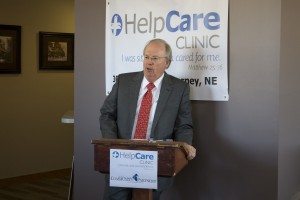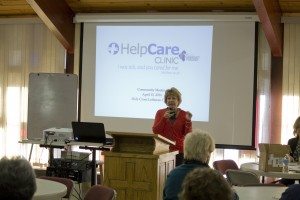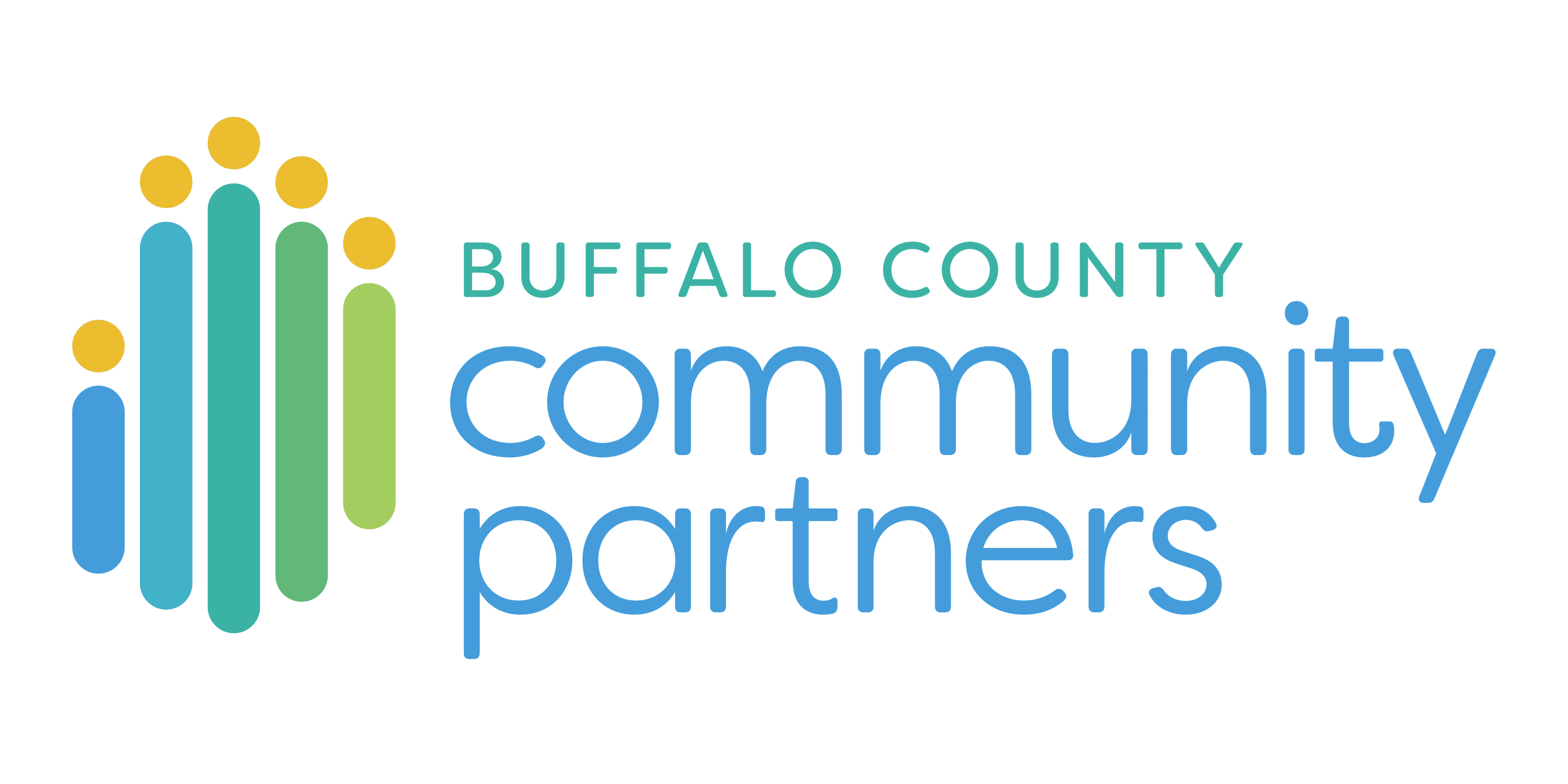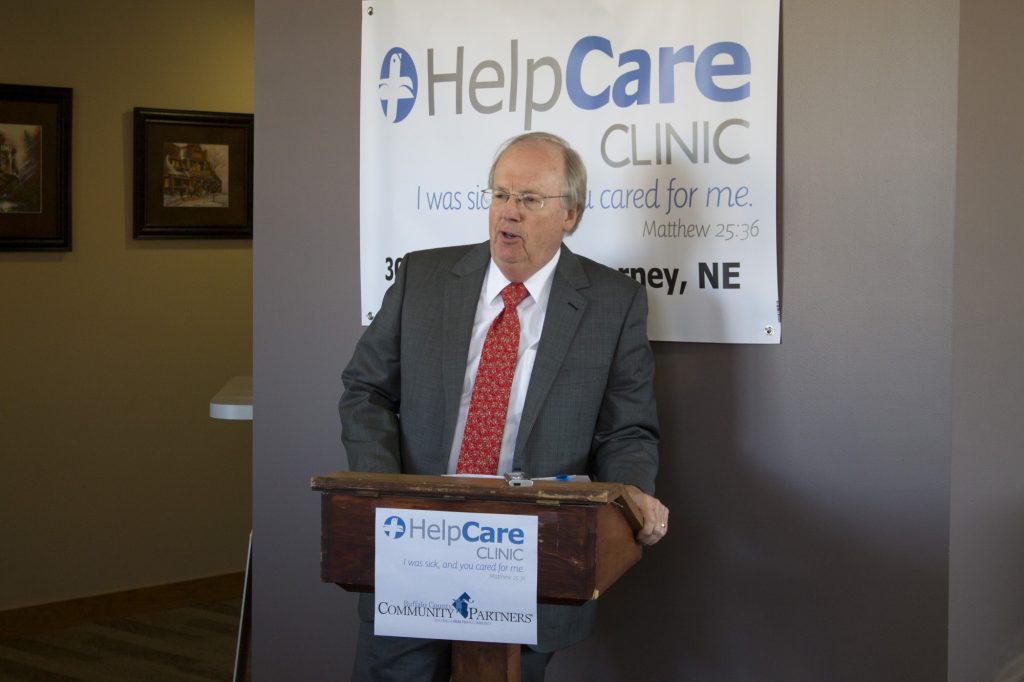“The free clinic has been a 15 year journey,” said Denise Zwiener in a Hub article published February 4, 2015. It all started in 2000 when Community Partners began investigating ways to provide medical care to those who could not afford it. The Community Health Access Team, CHAT, was formed as a coalition powered by Buffalo County Community Partners to work on the issue.
In July 2009 the CHAT team, received grant funding from CHI Health to develop a plan to improve access to care and serve a defined high risk population. They conducted research around best models to improve access to care and found that there was a need to utilize community health workers as a part of the integrated care team. A community health worker is the link between health/social services and the community to facilitate access to services and improve the quality and cultural competence of service delivery.

Dr. Ken Shaffer speaking at the press conference to open up the HelpCare clinic in 2015. Shaffer had served on the planning committee for the clinic and now volunteers his time there.
In 2012, CHAT received the largest CHI Health Grant of $540,000 to implement the ‘Pathway Model’ to enrol 250 individuals with diabetes, linking them to a community health worker and defining an access to care path.This pilot program showed a 4:1 return on investment after three years.
Even when people were being linked with a community health worker individuals still had barriers to accessing primary care. The need for a primary care facility to serve this population of people in the community became apparent.
Linda Mulbach, first executive director of HelpCare clinic shares the history;
“When I joined Buffalo County Community Health Partners as a board member, research was being done regarding the feasibility of developing a free clinic in Kearney. Mark Rukavina, a health care expert, from Boston had been hired to do an environmental scan to find out the need and resources available in the area. His work showed that there was definitely a need and the area could support a free clinic. On a trip to visit my sister-in-law in Minneapolis, I learned of a group called ECHO Clinics that her church was thinking of partnering with to bring a free clinic to their area. I contacted ECHO Clinics and found that they provided free consulting to churches and communities that wanted to develop a grass roots solution to the need for free medical care for the uninsured, low income in their communities.
After bringing this option to the BCCP board, Denise and I contacted ECHO Clinics and they were interested in partnering with us. The journey began in January 2014 after signing with them to assist us. They provided $50,000 of consulting to us for free through the help of their consultants. I worked on their development plan with our consultant, Jane, every Friday, and in April we held a community meeting to enlist volunteers for planning committees and a board of directors for the clinic. I was hired by BCCP in May of 2014 to become the Planning Team Leader and eventually the Executive Director, a role ECHO promoted in their development plan.

Linda Muhlbach, Executive Director HelpCare Clinic speaks at a community meeting to enlist volunteers to support the opening of the HelpCare Clinic.
Many volunteers throughout the community helped put together ideas in the areas of finance, operations, site, communications, legal and environmental development. A group of board members was developed. I led the volunteers through the process ECHO guided us in, which included a timeline of benchmarks to be established. On April 30, 2015 HelpCare Clinic opened its doors to see patients. All the hard work has paid off! So many uninsured, most of who have one or more chronic illnesses, are being cared for by mostly volunteer health professionals through HelpCare Clinic. What a blessing it has been to be a part of this process!
It is so rewarding to see that so many are getting the health care they need to help them become productive members of our community. Our tagline from Matthew 25:36 is, “….I was sick and you cared for me…”.
This has truly been the work of the clinic, to care for those in need.”
To learn more about the HelpCare clinic now visit HelpCare

